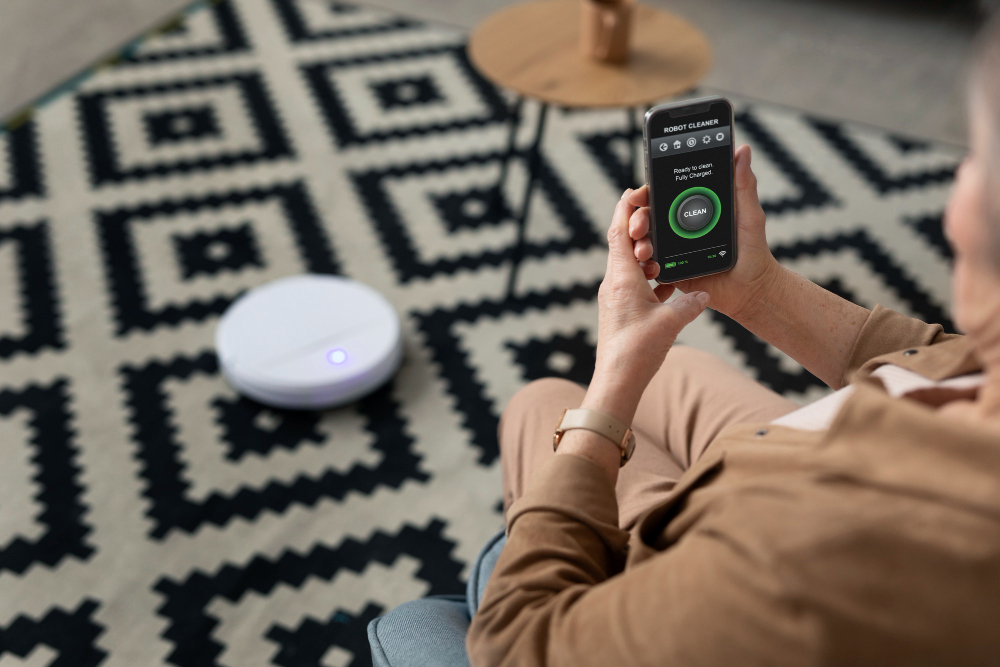How Home Automation Can Lower Your Insurance Premiums
Understand how having a high-tech home can even help you save on insurance. See the best you can get in 2025.
Understand How Technology Is Shaping Home Insurance in America
Smart homes are no longer a futuristic dream—they are a reality across America. Home automation has evolved from a luxury to a strategic tool, especially when it comes to saving on insurance costs.
In this context, many homeowners are starting to realize that investing in smart technology can lead to significant discounts on their homeowners insurance premiums.

But how does this work? And why are insurers encouraging the use of this technology?
The State of Home Insurance in the U.S.
Homeowners insurance is a common expense for Americans, especially in a country where hurricanes, wildfires, and property crimes can lead to significant financial losses.
According to data from the National Association of Insurance Commissioners (NAIC), the average annual cost of homeowners insurance in the U.S. is around $1,500.
With inflation driving up prices and the cost of materials and labor on the rise, insurers have also increased premiums in recent years.
This has prompted many homeowners to seek new ways to cut costs—and smart home technology has emerged as a viable solution.
Why Do Insurers Offer Discounts?
Insurance companies operate based on risk management. The lower the risk of a claim (fire, theft, water damage, etc.), the less a customer is expected to pay.
That’s where smart devices come in. Automated and connected systems help prevent damage or allow for rapid response during emergencies, ultimately reducing the risk of large losses.
As a result, many insurers now offer discounts ranging from 5% to 20% for homes equipped with specific technologies.
Key Devices That Can Earn You Discounts
- Smart Smoke and Gas Detectors
Devices that send alerts to your smartphone when smoke or carbon monoxide is detected allow for quick action and can prevent major fires. - Smart Security Cameras and Alarms
Video surveillance systems connected to mobile apps help prevent break-ins and provide real-time property monitoring, which helps deter criminals. - Smart Locks
Smart locks provide controlled access and record who enters or exits your home. In the event of theft or unauthorized access, data is easily retrievable. - Water Leak Detectors
Devices like Flo by Moen and Phyn Plus detect leaks early—and can even shut off the water automatically, preventing costly structural damage. - Smart Thermostats
While they don’t directly impact insurance premiums as much, devices like the Nest Thermostat help monitor energy consumption and prevent overheating, especially in heating systems.
Major Insurers Offering Smart Home Incentives
Here are some companies offering discounts to policyholders with smart home setups:
- State Farm: Offers up to a 15% discount for homes with smart devices.
- Allstate: Partners with device manufacturers to provide sensors and immediate premium reductions.
- Liberty Mutual: Rewards programs for using smart smoke and water leak detectors.
- Hippo Insurance: Known for its direct integration with smart home tech, offering bundled discounts with 24/7 monitoring.
Financial and Economic Considerations
For those concerned with personal finances, automation can be a valuable tool for financial discipline.
Beyond saving on insurance, smart devices help
- Avoid unexpected losses.
- Lower energy and water consumption
- Increase your home’s market value, should you decide to sell it in the future.
Challenges and Considerations
Despite the benefits, there are a few things to keep in mind:
- Initial Cost: Installation may require an investment starting at $500, depending on complexity.
- Data Privacy: Connected devices collect user data, making it crucial to choose reliable and secure brands.
- Maintenance: Sensors and systems need regular updates and testing, which can also incur additional costs.
The Future of Home Insurance
With the rise of artificial intelligence, the Internet of Things (IoT), and integration with assistants like Alexa and Google Home, home insurance is becoming increasingly dynamic and personalized.
Insurers are already testing behavior- and usage-based models, where monthly premiums vary according to how you interact with your home.
Final Thoughts
Investing in home automation is much more than convenience—it’s an economic strategy.
If you want to reduce your expenses, protect your property, and increase its long-term value, now may be the right time to make your home smarter—and your insurance cheaper.





